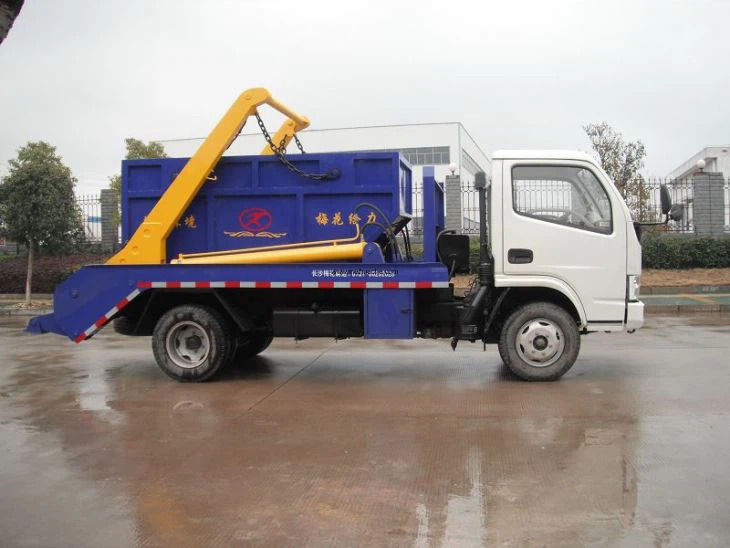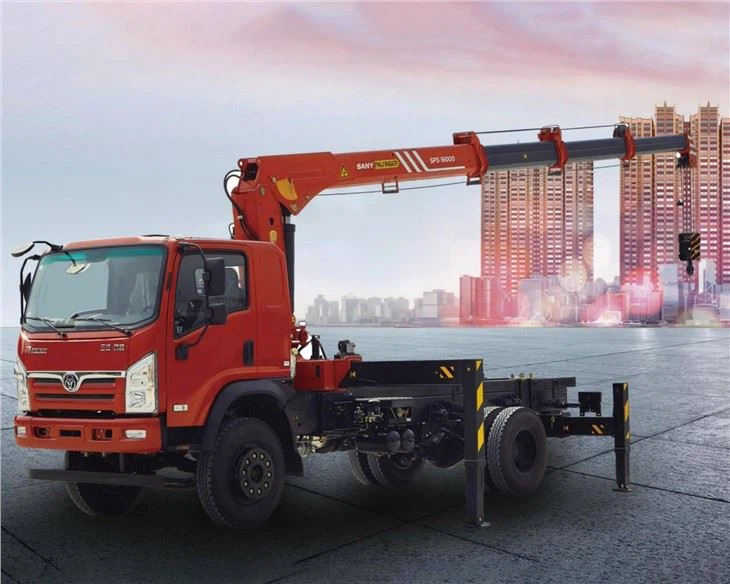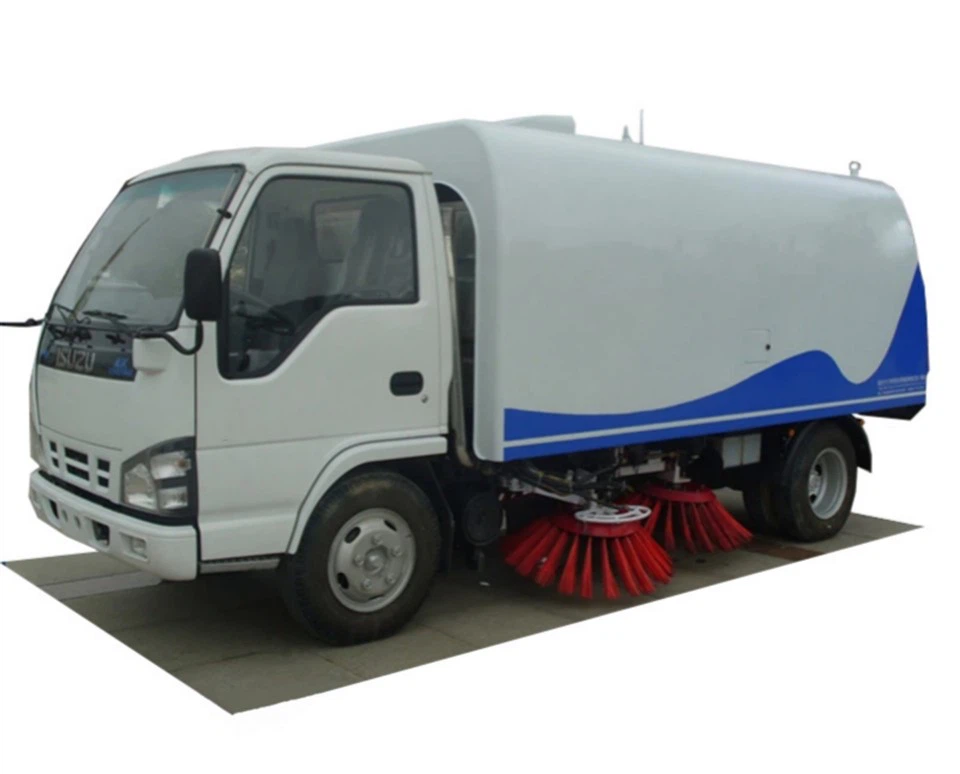Rubbish Dump Truck: The Backbone of Waste Management

Introduction
In the realm of municipal services, rubbish dump trucks play a crucial role in maintaining cleanliness and sanitation. These vehicles are specifically designed to transport solid waste from collection points to disposal sites, making them an essential component of waste management systems worldwide. This article will delve deep into the world of rubbish dump trucks, exploring their types, features, benefits, and operational tips, along with practical examples to enhance understanding.
What is a Rubbish Dump Truck?
A rubbish dump truck is a specialized vehicle used for collecting and transporting solid waste materials such as household rubbish, construction debris, and industrial waste. These trucks are designed with unique features to handle heavy loads and challenging conditions, ensuring efficient and safe transport of waste to landfills or recycling facilities.
Types of Rubbish Dump Trucks
Rubbish dump trucks come in various configurations, each tailored for specific waste management needs. The most common types include:
| Type | Description |
|---|---|
| Rear Loader | Designed to pick up waste from bins located behind the truck, ideal for urban environments with limited space. |
| Front Loader | Equipped with forks at the front to lift and dump waste containers, often used for commercial waste collection. |
| Side Loader | Features an automated arm to pick up bins from the side, reducing the need for drivers to leave the cab. |
| Roll-off Truck | Used for transporting roll-off containers, suitable for large construction or industrial projects. |
Key Features of Rubbish Dump Trucks
Rubbish dump trucks are equipped with various features designed to enhance their performance and usability. Some key features include:
- Hydraulic Systems: Essential for lifting and dumping loads, hydraulic systems provide the necessary power to operate the truck efficiently.
- Compactor Mechanisms: Many dump trucks have built-in compactors to reduce the volume of waste, allowing for more efficient transport.
- Durable Construction: Made from robust materials, these trucks can withstand the wear and tear of heavy-duty use.
- GPS Tracking: Some modern trucks come equipped with GPS systems, enabling real-time tracking and management of waste collection routes.
Benefits of Using Rubbish Dump Trucks
The use of rubbish dump trucks in waste management offers several benefits that contribute to a cleaner, more efficient ecosystem:
Improved Waste Collection Efficiency
With their specialized design and features, rubbish dump trucks can collect and transport larger quantities of waste in a single trip, reducing the number of trips needed and saving time and fuel.
Environmental Benefits
Rubbish dump trucks equipped with compaction technology can minimize the number of vehicles on the road, reducing carbon emissions and the overall environmental footprint of waste management operations.
Cost-effectiveness
Investing in rubbish dump trucks can lead to long-term cost savings by optimizing fuel efficiency and reducing labor costs associated with manual waste collection and transport.
Operational Tips for Rubbish Dump Truck Drivers
Safety First
Safety is paramount when operating rubbish dump trucks. Here are some tips for drivers:
- Ensure all safety protocols are followed during loading and unloading.
- Regularly check the truck’s hydraulic systems and brakes.
- Keep communication open with ground crew and other drivers.
Route Optimization
Efficient route planning can significantly enhance productivity. Utilizing GPS for mapping the most efficient collection routes can save time and fuel costs.
Regular Maintenance
To prevent breakdowns and ensure optimal performance, regular maintenance checks should be performed on all truck components, including the engine, hydraulics, and tires.
Choosing the Right Rubbish Dump Truck
When selecting a rubbish dump truck, consider the following factors:
Load Capacity
Choose a truck based on the volume and weight of waste you typically handle. It’s essential to select a model that can safely accommodate the expected loads.
Type of Waste
Different trucks are suitable for different types of waste. Ensure that the truck you choose is designed to handle the specific kind of rubbish you will be transporting.
Operational Area
Consider the geographical area where you will be operating. Urban environments may require smaller, more maneuverable trucks, while rural areas may benefit from larger models.
Examples of Rubbish Dump Trucks in Use
Case Study: A City’s Waste Management System
In City X, a fleet of rear loader rubbish dump trucks is deployed to manage residential waste collection. The trucks operate efficiently, making weekly rounds to pick up garbage from designated residential bins.
Case Study: Construction Site Waste Management
Construction site Y uses roll-off trucks to manage debris and waste materials. This system allows for flexible scheduling and ensures that the site remains clean and compliant with safety regulations.
Trends in Rubbish Dump Truck Technology
The waste management industry is continuously evolving, and rubbish dump trucks are no exception. Some emerging trends include:
Electric Rubbish Dump Trucks
With the push for sustainability, many companies are developing electric dump trucks that reduce emissions and operational costs while promoting a cleaner environment.
Smart Dump Trucks
Integrating IoT technology, smart dump trucks are becoming increasingly popular; they can monitor performance metrics, track waste collection, and provide data to optimize operations.
Environmental Regulations and Rubbish Dump Trucks
Adhering to environmental regulations is crucial for waste management companies. Here are key regulations that affect rubbish dump trucks:
Emission Standards
Many regions have specific emissions standards that rubbish dump trucks must meet. Ensuring compliance not only helps the environment but also avoids potential fines.

Waste Disposal Regulations
Proper disposal of hazardous waste is strictly regulated. Rubbish dump trucks used in these scenarios must be equipped to handle such materials safely and legally.
Future of Rubbish Dump Trucks
The future of rubbish dump trucks is likely to be shaped by advancements in technology, sustainability initiatives, and changing public perceptions regarding waste management. Key areas of focus include:
Increased Automation

As automation technology continues to advance, rubbish dump trucks may include more automated features to enhance efficiency and worker safety.
Innovative Waste Solutions
Encouraging recycling and waste-to-energy initiatives will influence the design and utility of rubbish dump trucks, leading to a more integrated waste management ecosystem.
Frequently Asked Questions (FAQ)
What is the average lifespan of a rubbish dump truck?
The average lifespan of a rubbish dump truck can range from 10 to 20 years, depending on usage and maintenance.
How much weight can a rubbish dump truck carry?
Most rubbish dump trucks can carry between 10 to 20 tons, with specific limits varying based on truck type and design.
Can rubbish dump trucks operate in adverse weather conditions?
Yes, rubbish dump trucks are designed to operate in various weather conditions, but operators should exercise caution and adjust driving practices accordingly.
How often should rubbish dump trucks be serviced?

Regular servicing should be conducted at least every 6 months, but more frequent checks are advisable based on usage and conditions.
Are electric rubbish dump trucks available?
Yes, many manufacturers have begun producing electric rubbish dump trucks, focusing on reducing environmental impact and operating costs.
What types of waste can be collected with rubbish dump trucks?
Rubbish dump trucks can collect a variety of solid waste types, including household rubbish, construction debris, and recyclable materials, depending on their design and capabilities.
